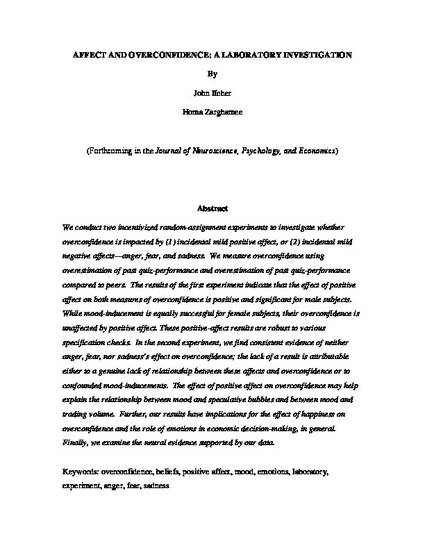
We conduct two incentivized random-assignment experiments to investigate whether overconfidence is impacted by (1) incidental mild positive affect, or (2) incidental mild negative affects-anger, fear, and sadness. We measure overconfidence using overestimation of past quiz-performance and overestimation of past quiz-performance compared to peers. The results of the first experiment indicate that the effect of positive affect on both measures of overconfidence is positive and significant for male subjects. While mood-inducement is equally successful for female subjects, their overconfidence is unaffected by positive affect. These positive-affect results are robust to various specification checks. In the second experiment, we find consistent evidence of neither anger, fear, nor sadness's effect on overconfidence; the lack of a result is attributable either to a genuine lack of relationship between these affects and overconfidence or to confounded mood-inducements. The effect of positive affect on overconfidence may help explain the relationship between mood and speculative bubbles and between mood and trading volume. Further, our results have implications for the effect of happiness on overconfidence and the role of emotions in economic decision-making, in general. Finally, we examine the neural evidence supported by our data.
